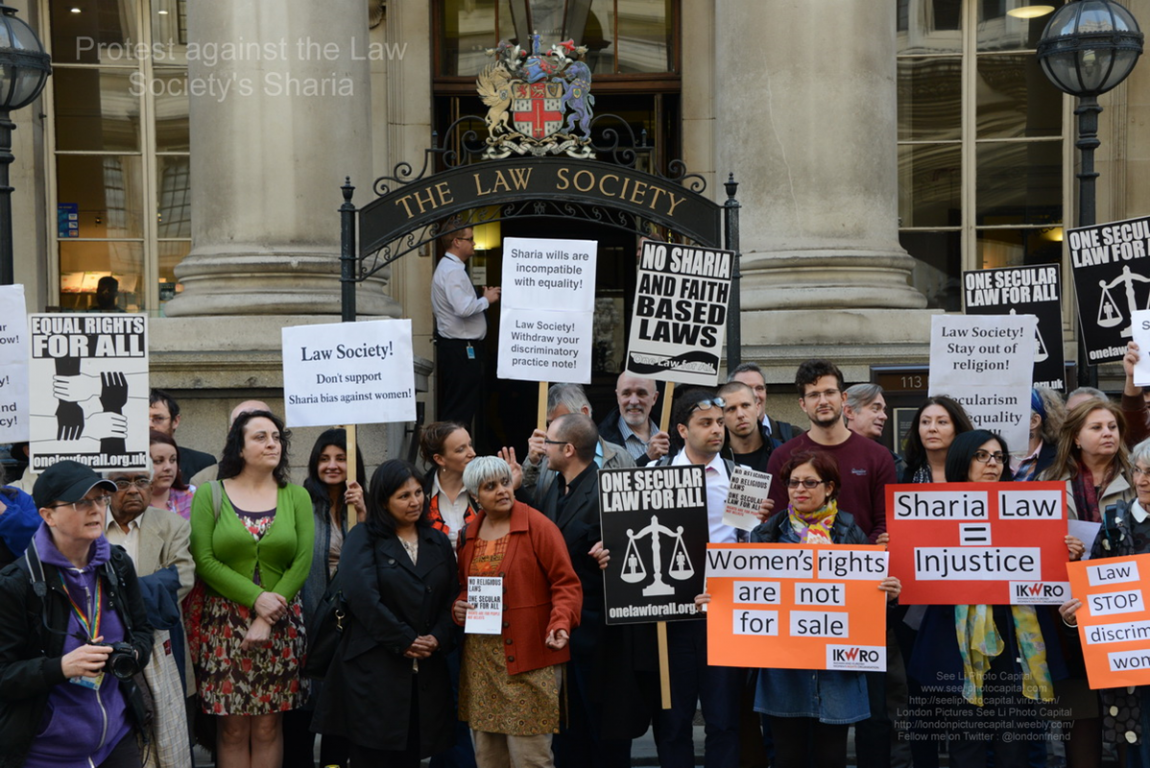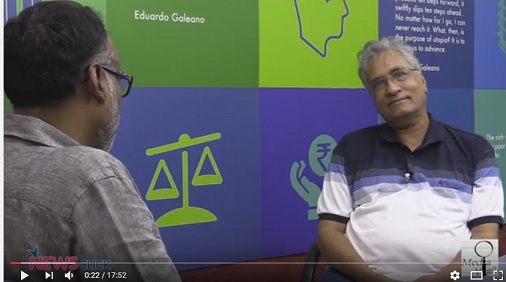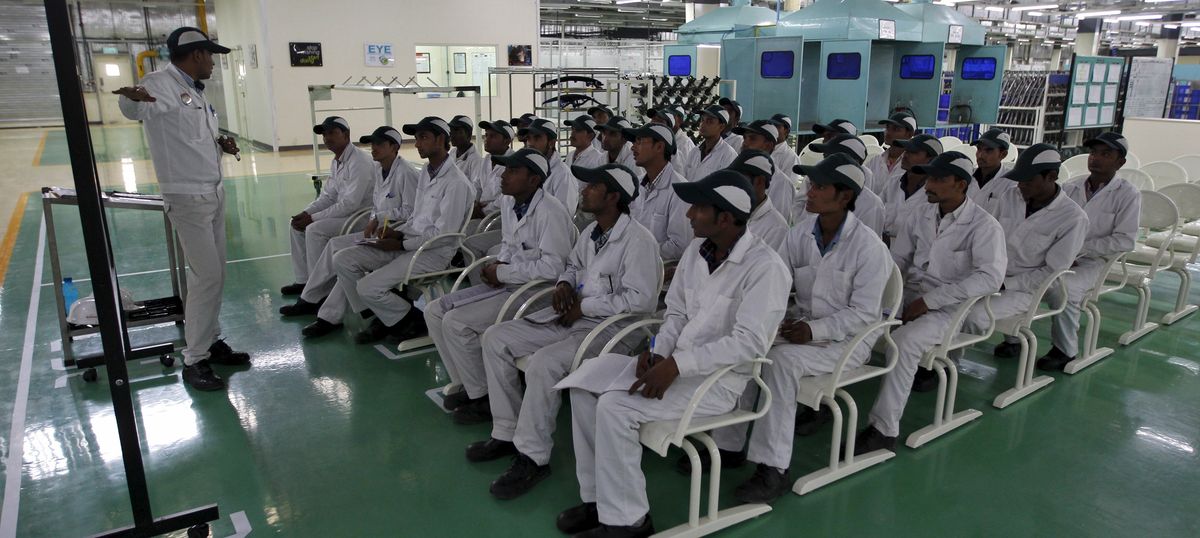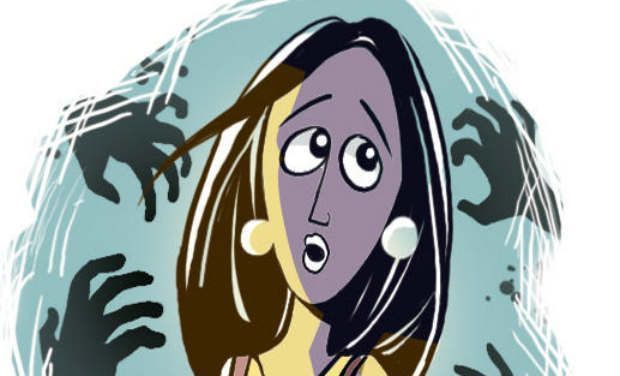The reason Muslims have failed to read the Qur’an as an anti-patriarchal text has to do with who has read it (basically men), the contexts in which they have read it (basically patriarchal), and the method by which they have read it (basically one that ignores the hermeneutic and theological principles that the Qur’an suggests for its own reading)

(In 2003, professor Asma Barlas delivered a keynote address at Ithaca College based on her book, “Believing Women” in Islam, Unreading Patriarchal Interpretations of the Qur’an, dealing with the Qur’an’s position on sexual equality. A modified version of her talk was published in three parts by The Daily Times, Pakistan a few months later. We are republishing an abridged version of the articles as they have a direct bearing on the current debates in India, within and outside the Supreme Court, on the issues of triple talaq, halala marriages and polygamy)
My interest in studying Islam grew out of experiences in Pakistan, which is my home country and where I lived until 1983, and in the US where I’ve spent the last twenty years of my life.
It is easy to assume that the prevailing culture in Pakistan is Islamic because 98% of the people are Muslims and it wasn’t until I no longer was embedded in that culture that I came to realise show much of what passes as Islam actually ignores or violates the Qur’an’s teachings. (The reason I use the Qur’an as a yardstick to evaluate Muslim practices is because I believe that a scripture offers the most authoritative and compelling exposition of a religion.)
A case in point was the introduction of segments of Muslim law, the Sharia, into the country by its previous military ruler, Zia ul Haq. The Sharia, unfortunately, legalises sexual inequality by equating the testimony of two women to that of one man and it also fails to distinguish between rape, adultery, and extramarital sex, for all of which it prescribes stoning to death, something that the Qur’an itself does not sanction for any crime in any context.
Is the Qur’an a patriarchal or misogynistic text? No. Can the Qur’an be a source for women’s liberation? Yes.
Such laws naturally had devastating consequences for women. One particularly notorious case involved the rape of a blind woman who became pregnant. The court took this as evidence that she was guilty of extramarital sex and sentenced her to be stoned, though the sentence was later stayed.
Meanwhile, the rapist went free because, being blind, she couldn’t identify him. However, even if she had been able to see him, the court would still have discounted her testimony because it wasn’t corroborated by another woman. This, however, is a gross misreading of the Qur’an since in only one out of several instances of evidence-giving does the Qur’an say that two women can serve as witnesses to a financial transaction if a man is not available.
In the other cases, it does not distinguish between women’s and men’s testimonies and in the case of adultery, it privileges the woman’s testimony. If a man accuses his wife of adultery and cannot produce four male witnesses to corroborate his testimony, the Qur’an allows the wife to be her own witness; if she swears her innocence, it gives her husband no further legal recourse against her.
But the Sharia clearly does not see the Qur’anic privilege given to women in this instance as proof that women’s evidence isn’t automatically half that of a man’s. So, even before I left Pakistan, I had become aware of the “striking difference between what can be safely inferred from the Qur’an itself and what has frequently been read into it” (Neal Robinson, Discovering the Quran, London: SCM Press, 1996: 29).
[There is a] “striking difference between what can be safely inferred from the Qur’an itself and what has frequently been read into it.”
This realisation grew in the US where people ascribe all sorts of stuff to Islam that either has nothing to do with it or isn’t Islamic in its particular manifestations, such as the harem, the veil, and female circumcision, and after 9/11, the concept of holy war. There is, however, no concept of holy war or of female circumcision in the Qur’an, and the forms of polygyny most Muslims practice violate the Qur’anic provisions on marriage, as do many forms of veiling…
I raise two sets of questions in my book (‘Believing Women’ in Islam, Unreading Patriarchal Interpretations of the Qur’an, University of Texas Press, 2002) as a way to flesh out the Qur’an’s position on equality.
First, is the Qur’an a patriarchal or misogynistic text? When I ask this question, “I am asking whether it represents God as Father/male or teaches that God has a special relationship with males or that males embody divine attributes and that women are by nature weak, unclean, or sinful. Further, does it teach that the father/husband is divinely ordained and an earthly continuation of God’s Rule, as religious and traditional patriarchies claim? Alternatively, does the Qur’an advocate gender differentiation, dualisms, or inequality on the basis of sexual (biological) differences between women and men? In other words, does it privilege men over women in their biological capacity as males, or treat man as the Self… and woman as the Other, or view women and men as binary opposites, as modern patriarchal theories of sexual differentiation and inequality do?”
Second, I ask whether we can read the Qur’an for liberation. When I ask this question, “I am asking whether its teachings about God as well as about human creation, ontology, sexuality, and marital relationships challenge sexual inequality and patriarchy. Alternatively, do the teachings of the Qur’an allow us to theorise the equality, sameness, similarity, or equivalence, as the context demands, of women and men?” (Asma Barlas, “Believing Women,” in Islam 2002:1).
Contrary to what many Muslims claim, the Qur’an does not establish men as ontologically superior to women or as rulers over them; rather, it designates women and men each other’s ‘guides’ (awliya) and establishes love and mutuality as the basis of marriage.
As is obvious, these questions presuppose a particular view of patriarchy and in passing I should mention that no one until now had applied a definition of patriarchy to read the Qur’an even though, as I noted earlier, many Muslims regularly condemn Islam as a patriarchal religion.
I define patriarchy in both a narrow (specific) and a broad (universal) sense in order to make the definition as comprehensive as possible. Narrowly defined, patriarchy is a historically specific mode of rule by fathers that, in its religious and traditional forms, assumes a real as well as symbolic continuum between a patriarchalised view of God as Father/male, and a theory of father-right, extending to the husband’s claim to rule over his wife and children. I apply this definition in reading the Qur’an because the Qur’an was revealed in the context of a traditional patriarchy, and my aim is to see if it endorsed this mode of patriarchy by representing God as Father or by representing the father or husband as ruler over his wife and children.
Since the Qur’an’s teachings are universal and since father’s rule has reconstituted itself, I also define patriarchy more broadly, as a politics of sexual differentiation that privileges males by ‘transforming biological sex into politicised gender, which prioritises the male while making the woman different (unequal), less than, or the ‘Other’”( Zillah Eisenstein,
Feminism and Sexual Equality: Crisis in Liberal America, New York: Monthly Review Press, 1984: 90. I should note that in her later work, Eisenstein does clarify that difference doesn’t mean inequality, which is a crucial point to which I will return).
Using this definition, I show that it is possible “to answer the first set of questions — is the Qur’an a patriarchal or misogynistic text — in the negative, while [answering…] the second
— can the Qur’an be a source for women’s liberation — in the affirmative”(Barlas, p. 2)
Since patriarchies do transgress against women’s rights by oppressing them, I argue that the Qur’an cannot possibly endorse them and we should read its provisions with this idea in mind.
To begin with, the Qur’an does not represent God as Father or male; indeed, it explicitly forbids sacralising God as Father or using similitude for God. Nor does it sacralise fathers or fatherhood. It does recognise that in historically existing patriarchies, men are the locus of authority and it does address patriarchies, but addressing a patriarchy is not the same as condoning or advocating one and indeed, the Qur’an repeatedly says that “following the ways of the father” has prevented people from the path of God.
My reading of the Qur’anic accounts of the prophets Abraham and Muhammad, also suggests an inherent conflict between monotheism and patriarchy inasmuch as the latter
sacralises men and their authority over women and children, which the Qur’an does not do.
Thus, contrary to what many Muslims claim, the Qur’an does not establish men as ontologically superior to women or as rulers over them; rather, it designates women and men each other’s “guides” (awliya) and establishes love and mutuality as the basis of marriage. Moreover, in Islam sexual equality is ontological in that the Qur’an teaches that God created humans from a single self (nafs). It does not privilege the man’s creation or endow him with attributes or faculties not given to the woman. Rather, humans “manifest the whole” (Sachiko Murata, The Tao of Islam: A Sourcebook on Gender Relationships in Islamic Thought, Albany: SUNY, 1992, p. 43; her emphasis).
The Qur’an also does not define men and women as opposites, or portray women as lesser or defective men, or the two sexes as incompatible, incommensurable, or unequal. In fact, it does not even associate sex with gender; thus, while the Qur’an recognises biological differences, it does not assign them any gender symbolism making it difficult to derive a theory of sexual and gender inequality from its teachings. The Qur’an also does not link women and men to specific gender roles. There is not a single verse that suggests that men’s gender roles are a function of their biology, or that biological differences between men and women make them unequal.
Therefore, while the Qur’an does treat women and men differently with respect to some issues this doesn’t mean that it establishes them as unequal. For one thing, difference in itself does not imply inequality. For another, the Qur’an does not tie its different treatment of women and men to any claims about biological superiority or inferiority.
The only basis on which Islam does distinguish between human beings is on the basis of their moral praxis…; as Sachiko Murata (p. 44) says it “distinguishes between those who have faith and those who do not: the 'believers' and the 'unbelievers.' In all the perspectives of Islamic life and thought people are separated into groups according to the degree to which they fulfill the purpose of life.’”
It is not just on the basis of such teachings that I describe the Qur’an as anti-patriarchal, but also on the basis of the claim that the anti-patriarchal nature of Qur’anic epistemology flows from Islamic conceptualisations of God. This part of my argument maintains that since there is an intrinsic relationship between God Being’s and God’s Speech, we need to connect them, which means we need to base our readings of the Qur’an in our understanding of God.
For instance, the doctrine of Tawhid maintains that God is One and God’s sovereignty/rule is indivisible. To my mind, this means that we should not read the Qur’an as designating men as rulers over women, or as intermediaries between God and women, since this constitutes shirk. Similarly, the Qur’an teaches that God is Just and never does zulm
to people (zulm, in the Qur’anic context, means transgressing against another’s rights). As such, I believe God’s Speech also cannot teach transgression against the rights of humans.
Since patriarchies do transgress against women’s rights by oppressing them, I argue that the Qur’an cannot possibly endorse them and we should read its provisions with this idea in mind. Likewise, the Qur’an teaches that God is un-representable; as such, linguistic references to God as “He” should be seen as limitations of human language and not accurate statements about God’s Reality.
If we apply such criteria to read the Qur’an and also read it for its best meanings and as a thematic whole, privileging its clear verses over its allegorical, as the Qur’an itself recommends, then we arrive at an interpretation that captures the radically egalitarian nature of its teachings.

If, as I have argued, the Qur’an does not endorse theories of male privilege and female inferiority and subordination, then the question becomes why haven’t Muslims read it as an anti-patriarchal and liberatory text? I want to address this problem, as well as the larger issue of interpretation, in the last part of my talk.
I believe that the reason Muslims have failed to read the Qur’an as an anti-patriarchal text has to do with “who has read it (basically men), the contexts in which they have read it (basically patriarchal), and the method by which they have read it (basically one that ignores the hermeneutic and theological principles that the Qur’an suggests for its own reading)” (Asma Barlas, “Challenging Patriarchal Interpretations of Islam,” Anderberg Lecture, University of Nebraska, 2002).
Much of the religious knowledge Muslims regard as canonical today is the product of a method that has been described as linear, atomistic, and hermeneutically flawed. However, because of how religious knowledge and authority came to be structured in Muslim societies historically, most Muslims continue to regard these interpretations and this methodology as Islamic.
Much of this religious knowledge also was produced by male scholars in the first few centuries of Islam which were co-terminus with the medieval period of European history. Even though Muslim civilisation was at its zenith during this period of European decline, this was nonetheless an era of enormous misogyny that was cross-cultural and inter-national in its scope.
Added to this is the fact that many of the Qur’an’s provisions threatened existing relationships of power between women and men and between the rulers and the ruled and produced a strong conservative resistance that extended to de-radicalising parts of its message very early on. For instance, Fatima Mernissi shows how many Muslim men tried to misread the verses that extended inalienable rights to women (The Veil and the Male Elite, New York: Addison-Wesley, 1991).
Similarly, Louise Marlow argues that as early as the second Islamic century, Muslim ulema had begun to dilute the egalitarian impulse in various parts of tradition, by justifying hierarchical "models of kingship” in a society whose Scripture extolled the virtues of egalitarianism. Thus, the ulema who had “gained incontestable possession of the moral high ground [refused to] translate the anti-hierarchical and anti-authoritarian moral at the heart of their scholarly tradition into an active social and political opposition.”
Instead, they sought to justify not only hierarchies, but quietism as well, even though some of them “felt obliged to defend their quietism, since it was activism that had been suggested most strongly by early Muslim experience.” By the third Islamic century, even Quranic exegesis showed that the egalitarianism once associated with the Qur’an had lost its “subversive connotation” (Hierarchy and Egalitarianism in Islamic Thought, Cambridge: Cambridge University Press, 1977: 93; 66).
On its part, the early Muslim state also became involved in promoting certain interpretive practices and certain readings of Islam that were oppressive to women. This has been documented by several scholars, including Leila Ahmed, who also points out that different readings of the same texts yield “fundamentally different Islams” for women (Women and Gender in Islam: Historical Roots of a Modern Debate, Yale University Press, 1992).
All this suggests, of course, that hermeneutical and existential questions are connected and to the extent they are, it is reasonable to argue that one cannot read scriptures in liberatory modes by means of flawed methodologies and in oppressive and anti-democratic circumstances. Many people, including disillusioned Muslims, believe that Islam itself is anti-democratic, but I reject such essentialism because, as my own work shows, a religion is always polysemic (has a multiplicity of meanings) and we can read it in more than one way.
The early Muslim state also became involved in promoting certain interpretive practices and certain readings of Islam that were oppressive to women. This has been documented by several scholars, including Leila Ahmed, who also points out that different readings of the same texts yield “fundamentally different Islams” for women.
To me, then, the more appropriate question becomes “why does a community come to regard certain interpretations and ideas as authentic, authoritative, or canonical?” And that takes us back to such issues as how knowledge itself is produced and the contexts in which it is produced.
If we look at Muslim societies today, we find a rather dismal picture. Most of the regimes in power are viewed by their own people as illegitimate, oppressive, and un-Islamic. Moreover, as a result partly of Western support of such regimes and partly of the legacy of Western colonialism, Muslim societies have experienced modernisation not as economic development or political freedoms, but as a “coercive secularism” (Karen Armstrong,
Islam: A Short History, New York: Modern Library, 2000: 166).
This brings me to how non-Muslim Westerners view Islam and to the role of the US in keeping anti-democratic regimes in power in Muslim societies, and around the world generally. I have argued elsewhere that in spite of a 1,400 year long shared history, and in spite of the fact that Islam is as much a part of Abrahamic monotheism as are Judaism and Christianity, there is very little understanding of Islam in the US and the West. Even and perhaps, especially, in the Academy, only certain types of discourses on Islam get fore-grounded that continue to perpetuate ignorant and damaging stereotypes about it.
My own view is that this ignorance “is cultivated, not accidental, and that it arises in an age
-old politics of misrecognition that ‘confuses Islam with Muslims, disregards the role of political, economic, cultural, and historical factors in shaping not only Muslim attitudes and actions, but also their readings of Islam, and denies Western complicity in creating many of the conditions that are conducive’ to religious extremism and not just on the part of some Muslims” (Asma Barlas, “Jihad=Holy War=Terrorism: the Politics of Conflation and Denial,”
American Journal of Islamic Social Sciences, Winter 2003: 1).
In such a milieu, learning about Islam requires unlearning deeply entrenched modes of ignorance and non-recognition and while some people are open to such a possibility, most can see no stake in it because of the instrumentalist belief that there’s no value in learning about things that don’t impact their own lives in immediate and tangible ways. However, one of the things 9/11 should have brought home to us — and I intend the pun here — is that even as we secure ourselves behind imaginary borders of inside/outside, in real life, what happens “out there” is likely to have repercussions “in here” sooner or later as well.
This is why I believe US-Americans have a stake in the foreign policies that governments pursue in their names and which, for the most part, are conducive to oppression, not democracy. I also believe that US-Americans have a stake in egalitarian readings of Islam and of their own religions (and secular ideologies, for that matter) because we need to devise more egalitarian modes of “knowing one another,” to use a Qur’anic phrase. In the absence of mutual recognition based in mutual knowledge and understanding, we will be hard put to live peaceably together.
Asma Barlas is professor of politics, Ithaca College, USA.









